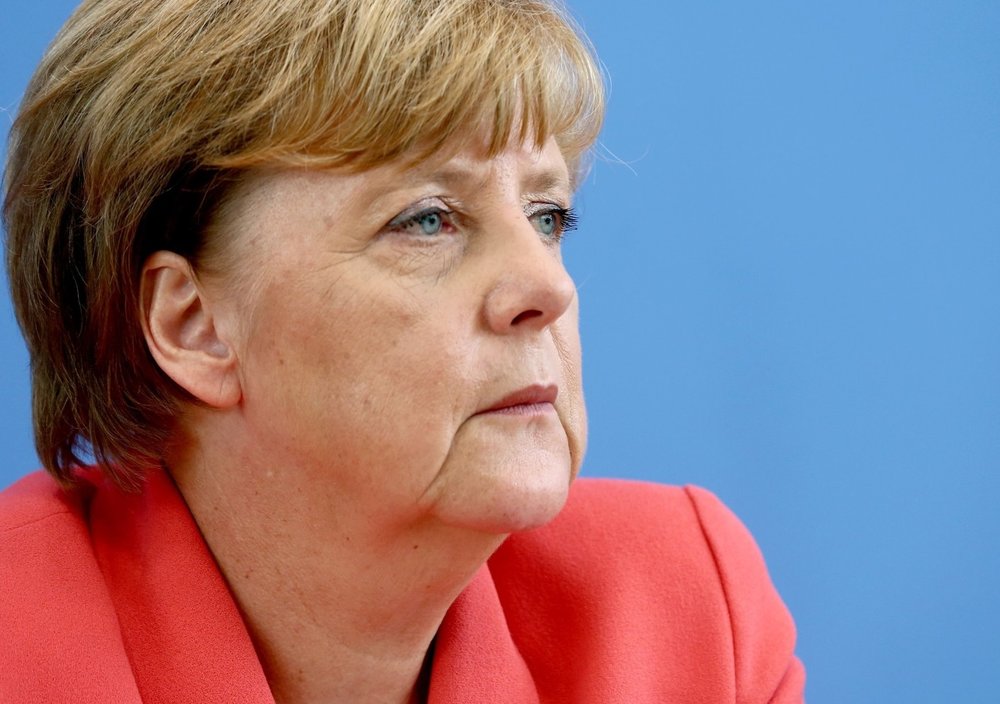Merkel's Farewell to her time of power

TEHRAN _ The Christian Democratic Party of Germany has begun negotiations to form a coalition government with its rival party, the Social Democrats. Many analysts and experts in European affairs agree that the re-emergence of a coalition between rival and traditional German parties will reduce the political power of Angela Merkel in the coming years. Particularly now that both parties disagree on issues such as the asylum seekers' crisis and the way of this country's presence in NATO.
Undoubtedly, these differences will remain strong over the coming years and will lead to the formation of a weak government in Berlin.However, the main question is why Merkel has finally had to take such action to form a coalition government? Isn't there any other option before the Chancellor of Germany?
An overview of the problem and nodes existing in Germany is remarkable. This year's general election in Germany was accompanied by the defeat of the Social Democrats and the fainting triumph of the Christian Alliance (Christian Democrats-Christian Social-Democrats). Also, in this election, the "Alternative for Germany", which is an extremist and anti-immigration party won about 13 percent of the vote, and for the first time since its inception, was able to find way to Germany's parliament and gain dozens of seats.
Since the coalition of Christian parties, having gained about 30% of the vote, did not actually have enough support to form the government, Angela Merkel began negotiations to form a coalition government with free Democrats and Greens. As a result, the four parties of Free Democrats, Christian Democrats, Greens and Christian Socialists entered into a coalition government.
The fact is that Merkel's failure to form a coalition called Jamaica (between Christian Democrats, Christian Socialist Party, Green Party and Free Democrats) has hit hard on the Chancellor of Germany. While everyone thought the Jamaica coalition would be formed between the four parties, at the last hour of the session, free Democrats prevented the coalition from forming. The Free Democrat leader eventually announced that the coalition had failed and that there were disagreements among coalition parties over economic issues. "Christian Lindner" stressed that he preferred to choose the second option between a bad government and not forming a government.
Under such circumstances, there were limited options before Angela Merkel. One of these options was the formation of a minimal government between the Christian Democrat Party and the Green Party. Many of Europe experts and analysts believed that Merkel would no longer have the power even if a minimalist government was formed in Germany. The reason for this is definitely clear! The Green Party is considered one of the opposition parties of the Christian Democratic Party, and its presence with the Democratic Christian Party in the form of a minimal government will never have the support of most MPs.
On the other hand, Merkel doesn't like to be the Chancellor of a minimal and weak government in the land of the Germans.There's yet another problem: the Green Party will naturally ask for some advantages to form a coalition government with Merkel, and this will diminish the power of the German Chancellor in the future. Therefore, Merkel obviously preferred not to consider the option of "forming a minimal government with the Greens" at the moment.
The second option laid before Merkel was holding early elections. Undoubtedly, choosing this option is also costly for Germany. Besides, surveys have shown that there won't be any remarkable changes in the composition of the votes even if an early election is to be held in Germany. On the other hand, this early election is costly for all German parties. Thus "Frank-Walter Steinmeier", the German President who is a Social-Democrat, has put another option before Merkel: a coalition with the Social Democrats and a repeat of the current German government!
The important fact here is that anything happens on the German political scene, it will not increase Merkel's maneuverability in the Germans' land. The German Chancellor will have little for maneuver in Berlin and Europe over the next four years. This is the worst possible news for Merkel.
She can no longer play an active role in the European economic and political spheres, since much of her political power should be spent on regulating internal relations in Germany. The recent failure of Angela Merkel to form a coalition government in Germany will also affect the EU's internal equations and that of the Eurozone. The drop in the value of Euro in global markets in recent days is due to the same issue.
What is certain is that choosing any of these option will cost a lot for Merkel as well as for her country. In case a coalition government is formed with the Social Democrats, we will again see major differences between the two traditional parties in Germany. Of course, it should not be forgotten that the SPD Socialist Democrat Martin Schulz in the German general election severely criticized Merkel's policies during the recent election.
Even after the election, he argued that there was no possibility of forming a coalition with the Christian Democrats. In such a situation, it is hardly possible to form a strong political bond between the rival parties in Germany.Germany, as a country that is the economic and political center of gravity in the European Union and the Eurozone, is now facing a crisis. A crisis that will certainly affect the future of Europe in the coming years.
Ultimately, apart from any incident that will take place in the near future in Germany (the formation of a minimal coalition government with holding an early election), it will no longer be possible to call the Chancellor of Germany a powerful politician in the European equations. This year's general election in Germany is an end for Merkel and her entourage, even ifshe remainsas the Chancellor in Berlin.
